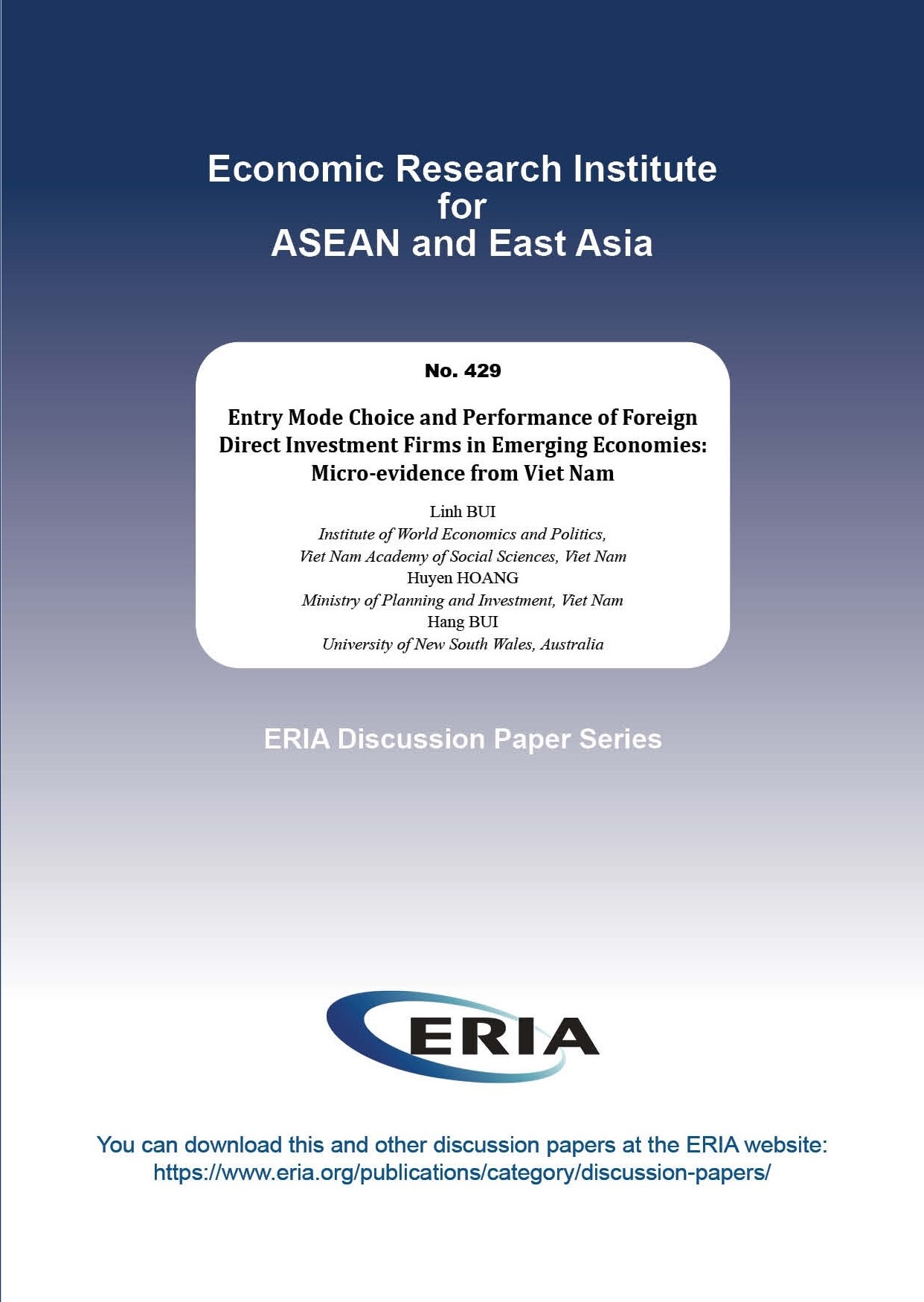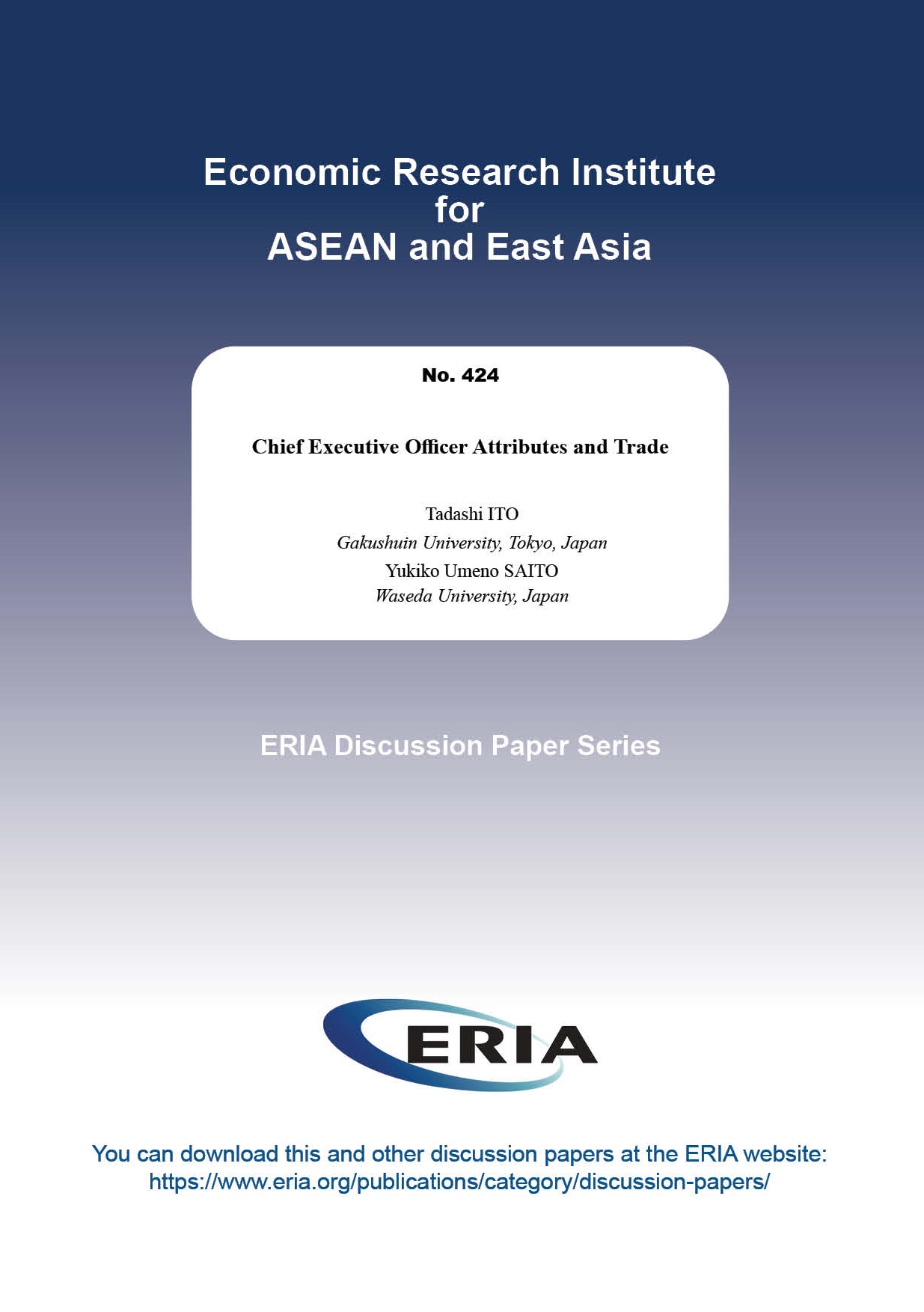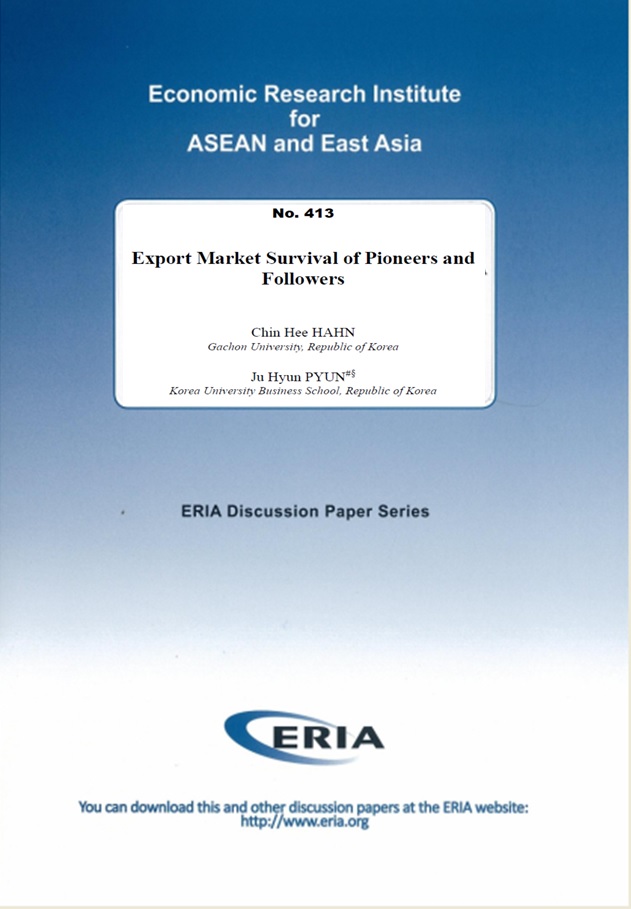Entry Mode Choice and Performance of Foreign Direct Investment Firms in Emerging Economies: Micro-evidence from Viet Nam

Date:
29 March 2022Category:
Viet Nam, InvestmentType:
Discussion PapersTags:
Investment, Viet NamPrint Article:
Does the right entry mode choice help foreign direct investment (FDI) firms to perform efficiently in emerging economies? This study attempts to answer this question by examining the impact of the entry mode choice made by FDI firms on their post-entry performance in emerging markets. Using a dataset derived from specific firms for the period 2002–2016, this study accounts for the selection biases and inherent differences of FDI firms that affect their selection of entry strategies. The study found that, with regard to the manufacturing sector, the ownership type with a wholly owned subsidiary (WOS) had negative impacts on either the technical efficiency or the total factor productivity (TFP) of firms. Conversely, regarding all sectors in the economy, the WOS is likely to have a positive role on technical efficiency and TFP. It is also interesting to see that for firms with an equity joint venture (EJV) type, the higher proportion of capital contribution from domestic firms might lead to lower technical efficiency and TFP. It implies that the higher degree of management and control by the domestic firms compared with foreign firms would have negative impacts on the EJV firms’ performance.




